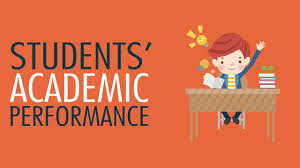A graduate assistantship is one of the best ways to fund your education while gaining valuable work experience. Many universities offer assistantships that cover tuition and provide a stipend in exchange for teaching, research, or administrative duties. If you’re looking to secure a graduate assistantship, follow these key steps to improve your chances.
Understand the Types of Graduate Assistantships Graduate assistantships come in different forms, and understanding them will help you choose the right fit:
Results
#1. What type of work are you most interested in?
#2. What is your gender?
#3. Which continent are you currently living in?
#4. What is your preferred work location?
#5. What is your highest completed level of education?
#6. What is your current employment status?
- Teaching Assistantships (TA): Assist professors with lectures, grade assignments, and sometimes lead discussions or labs.
- Research Assistantships (RA): Work on faculty-led research projects, analyze data, and contribute to academic publications.
- Administrative Assistantships: Help with university administrative tasks, student services, or program coordination.
- Athletic Assistantships: Support university sports teams through training and management duties.
Start Your Search Early Assistantship positions are highly competitive, so start your search as soon as possible. Many universities offer these opportunities through specific departments, so checking early will help you prepare your application.
Check University Websites and Department Listings Most graduate assistantship opportunities are posted on university websites under the financial aid or graduate programs section. Visit department websites, as some positions may be advertised directly through faculty members.
Reach Out to Professors and Departments Professors often seek graduate assistants for their research projects. If you are interested in a particular field, email faculty members directly. Express your interest in their work and inquire about available positions.
Prepare a Strong Application A compelling application increases your chances of securing a graduate assistantship. Most applications require:
- A well-written resume or CV highlighting academic achievements, research experience, and relevant skills.
- A strong personal statement explaining your qualifications, interest in the assistantship, and how it aligns with your career goals.
- Letters of recommendation from professors or professionals who can vouch for your academic abilities and work ethic.
- A high GPA and test scores, as some assistantships have academic performance requirements.
Develop Relevant Skills Many assistantships require skills such as:
- Research and data analysis for research assistantships
- Public speaking and communication for teaching assistantships
- Administrative and organizational skills for office-based roles Gaining experience in these areas through internships, coursework, or volunteer work can make your application more competitive.
Network with Graduate Students and Faculty Current graduate assistants and faculty members can provide insights into available opportunities. Attend university events, workshops, and networking sessions to connect with people who can help you find an assistantship.
Tailor Your Application for Each Position Avoid sending generic applications. Customize your resume, cover letter, and personal statement for each assistantship role. Highlight the skills and experience that match the specific duties of the position.
🎓 Must Read
Consider External Funding and Assistantships Some organizations and research institutes outside universities offer assistantship opportunities. Check for assistantships sponsored by government agencies, private research institutions, and international study programs.
Ace the Interview If shortlisted, you may be invited for an interview. Prepare by:
- Researching the department and faculty members.
- Practicing responses to common interview questions about your skills and experience.
- Demonstrating enthusiasm and readiness to contribute to the assistantship role.
Follow Up After Applying After submitting your application, follow up with the department or faculty member to express continued interest. A polite email can remind them of your application and reinforce your enthusiasm for the role.
Conclusion Securing a graduate assistantship requires strategic planning, strong academic credentials, and networking. By applying early, tailoring your applications, and developing relevant skills, you can increase your chances of funding your graduate studies while gaining valuable professional experience.









